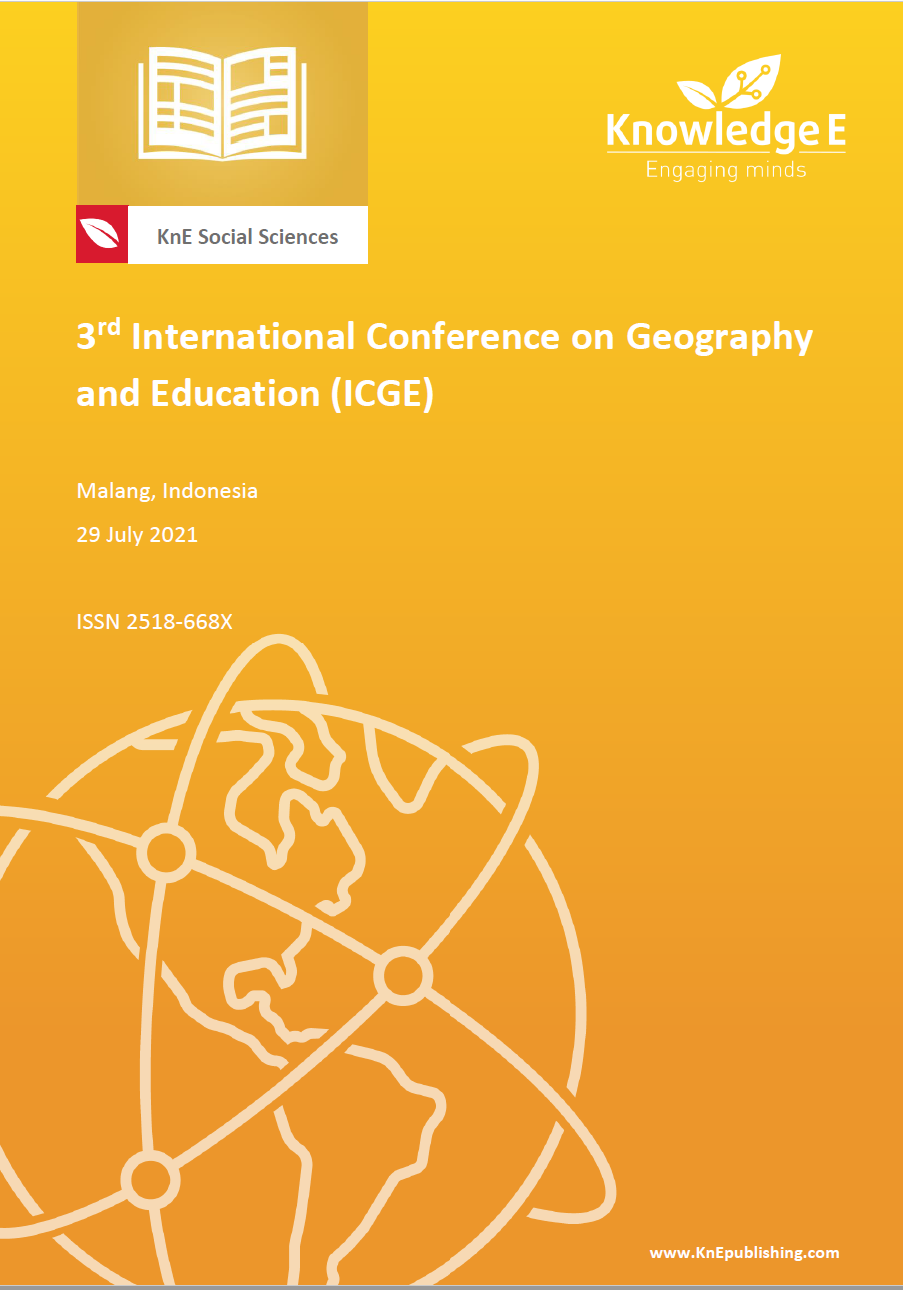Implications of the COVID-19 Pandemic for the Education of Children of Indonesian Migrant Workers on the Sebatik Island Border
DOI:
https://doi.org/10.18502/kss.v7i16.12171Abstract
Schools in border areas are threatened with closure due to the difficulty of organizing learning in the midst of a pandemic. This paper portrays this reality by describing the learning process of a border school (Madrasah Ibtidaiyah Darul Furqon) on Sebatik Island (the Indonesia-Malaysia border) during the COVID-19 pandemic. School is the foundation for the children of Indonesian migrant workers who work in Malaysian oil palm plantations. Therefore, this research applied a case study approach using qualitative research with the unit of analysis being families of Indonesian migrant workers who send their children to border schools. The results showed that learning activities in border schools can be facilitated through both online and offline learning. However, students often cannot attend lessons because of the lack of guidance from parents who are busy working as palm oil workers. Learning during the COVID-19 pandemic has also caused student interest to decline and has triggered an increase in school dropouts. Student education during the pandemic is viewed as free time to help parents earn extra income.
Keywords: school, COVID-19, Sebatik, borderland
References
[2] Fealy G. Jokowi in the Covid-19 era: Repressive pluralism, dynasticism and the overbearing state. Bulletin of Indonesia Economic Studies 2020;56(3):301–323.
[3] Rohman A. Pencegahan Penyebaran Covid-19 Dengan Gerakan Social Distancing Dan Sosialisasi Kebijakan Pemerintah Tentang Psbb Di Sebatik, Kabupaten Nunukan. Jurnal Pengabdian Kepada Masyarakat. 2021;27(2):114–119.
[4] Basundoro P. Sebatik island as a small door for Indonesia-Malaysia relations. 2013;3(2):133–143.
[5] Santosa AB. Potret Pendidikan di Tahun Pandemi: Dampak COVID-19 Terhadap Disparitas Pendidikan di Indonesia. CSIS Commentaries 2020:1–5. Available from https://www.csis.or.id/publications/potret-pendidikan-di-tahun-pandemidampak- covid-19-terhadap-disparitas-pendidikan-di-indonesia/
[6] Nursaptini AW. Problematics of online learning in student perspectives. 2020;4:100– 115.
[7] Warsono H, Nurcahyanto H, Khaerani TR. Social movement at Indonesia-Malaysia border (A case study of Indonesian migrant workers’ education in Sebatik island, a land border of Indonesia-Malaysia. 2018;13:4–6.
[8] Brata NT. Authority and budget for education services in the border area: Case study in Sebatik island, North Kalimantan. 2020;47( Jun):19–27.
[9] Raharjo TE. Strategies for fulfilling the educational needs of Indonesian migrant workers in border areas. Jurnal Penelitian Kesejahteraan Sosial. 2017;16(3):323–332.
[10] Muri’ah S. Border area education development strategy (Case study on Sebatik and Nunukan Boundary Madrasah Ibtidaiyah). Phenomenon. 2018;10(2):135–148. https://doi.org/10.21093/fj.v10i2.1340
[11] Hilma AO. The dynamics of formal education at the border (Case study of border schools in Sebatik Tengah District, Nunukan Regency, North Kalimantan). Makasar, Indonesia: University of Muhammadiyah Makassar; 2018.
[12] Subarto S. Momentum Keluarga Mengembangkan Kemampuan Belajar Peserta Didik Di Tengah Wabah Pandemi Covid-19. Adalah : Buletin & Hukum Keadilan. 2020;4:13– 18.
[13] Durkheim E. Mile Durkheim on institutional analysis. Chicago, USA:University of Chicago Press; 2013.
[14] Siburian R. Island Sebatik: Indonesia’s border area smells of Malaysia. Jurnal Masyarakat and Budaya. 2012;14(1):53–76.
[15] Marsico G. The borderland. Culture and Psychology. 2016;22(2):206–215.

